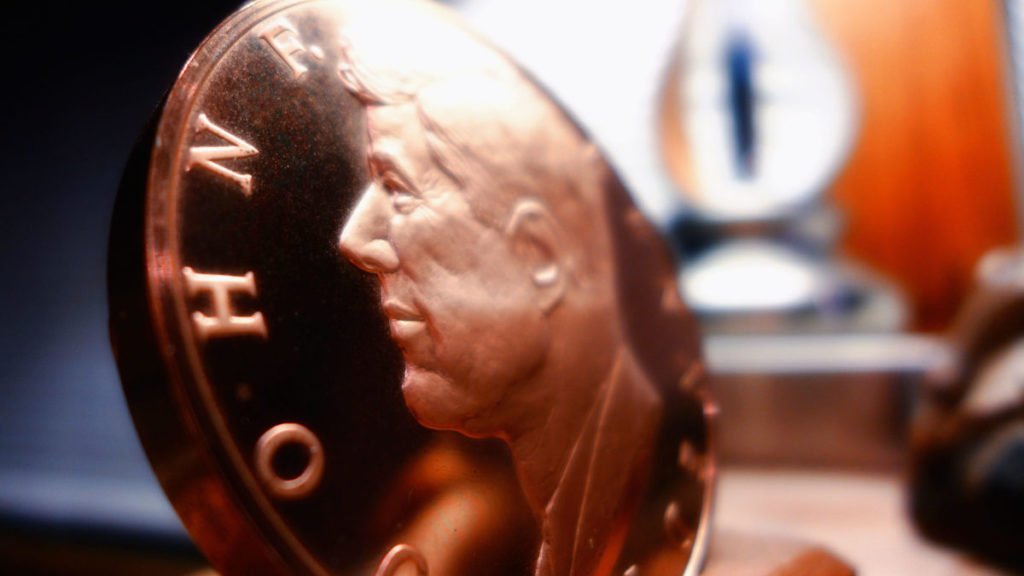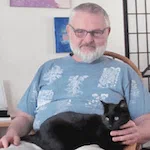At recess, I was talking to a friend on the schoolyard, when a kid came up to us and said that President Kennedy had been shot. He did not say he had died. He just said he had been shot.
I turned to my friend, and we exchanged uncertain looks. There was something smart-alecky about this kid, and I accused him of trying to put one over on us. I was twelve years (plus two months) old that November 1963, and I had read a book about the Secret Service, so I knew that the president had a team of well-trained bodyguards. I could not image that they might fail to keep the president from being shot. But the boy who claimed that John F. Kennedy had been shot showed no sign of admitting that he was yanking our chains. Instead, he shrugged and stuck to his story.
At the end of recess, we lined up to go back to class. The teacher on playground duty that day was named Paul Fidrych. Somebody asked him if it was true that the president had been shot, and Mr. Fidrych said, “Yes.”
“How did it happen?”
“He was riding in his car, and somebody shot him,” he said. I could tell that there was concern and much more beneath his forced calm, but Mr. Fidrych was not about to show us any of it.
“Is he going to be alright?” someone asked hopefully.
“I don’t know.”
Mr. Fidrych answered no more questions, but we were soon to learn that the president had, in fact, died. I don’t remember whether or not the school sent us home early, but my next memory is of walking up the street where I lived and going with a friend to his house. (To do that I had to walk four houses beyond my home.) Mr. Morrisey, my schoolmate’s father, kept saying, “How could this happen?” We were all numb. The TV was on with the latest news. None of it was good, and little made sense. One report said that the assassin had been captured quickly but shot a policeman to death before being caught.
When I got home, my own family was somber, too. We went through the motions of our Friday night routines. I remember that I had been looking forward to one of my favorite television programs that evening. You might think that this was insensitive of me, but I would have welcomed any semblance of what I thought of as “normal.” My show was preempted by live coverage of Vice-president Lyndon Johnson and widowed First Lady Jacqueline Kennedy flying the presidential plane back to Washington. When they landed, it was revealed that Johnson had been sworn in as president during the flight, witnessed by Mrs. Kennedy, still wearing the blood-stained dress she had worn much of the day.

Saturday brought more news, but attended by more questions than clarity. Then, Sunday morning, I got up early and turned on the TV, which showed a video of the next shocking assassination-related development that had taken place only about an hour earlier. Lee Harvey Oswald, the man identified as the president’s assassin, had been shot as he was being escorted through the garage of the Dallas police station. The shooter, Jack Ruby, who simply walked up and killed Oswald, had mixed easily in the crowd of reporters on the scene. Ruby had even spoken to a police detective who knew him and thought nothing of his being there.
I had to wonder what might be the next shock in store for us. We had all had enough of those.
Two postscripts of negligible relevance:
Two months after the Kennedy assassination, CBS finally aired the episode of The Great Adventure that I had been looking forward to on the day that Kennedy died. “Wild Bill Hickok: The Legend and the Man” was about the declining years of the famous Western figure who was ignominiously shot in the back in 1876. Instantly, I could see why CBS had not aired that particular episode earlier than they did.
Mr. Fidrych, the teacher on the schoolyard, was the father of Mark Fidrych, the Detroit Tiger whose baseball career—1976 to 1980—was cut short due to a torn rotator cuff. Mark died in an accident on his Massachusetts farm in 2009.

Share this post with your friends.


Sending the children home early was widely done that day. A man who was in third grade in a New York school said he remembered being sent home after the Kennedy assassination because he lived across the street from his school. So my memory of walking up the street to a friend’s house must have been because my parents were not yet home so early in the afternoon that day. (My father would have been at work, ordinarily; my mother would have been home, unless she had some commitment that day or was out shopping.)
“When they landed, it was revealed that Johnson had been sworn in as president during the flight….”
Actually, I believe that V-P Johnson was sworn in before Air Force One took off. Some say that technically, the V-P becomes president upon the death of the president, and that the swearing in is only a formality.